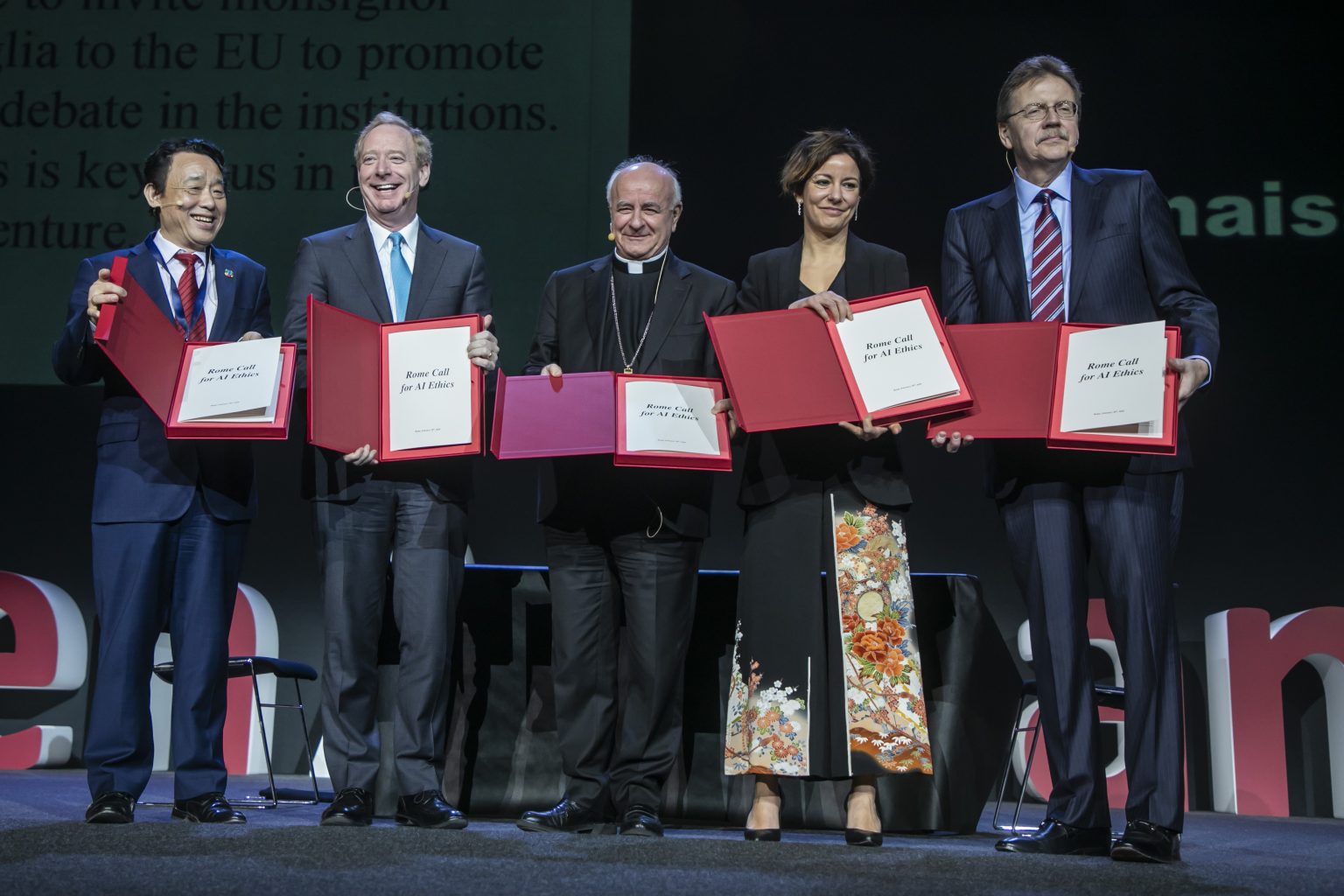PARIS, November 12, 2021 – In the context of artificial intelligence, the development of every algorithm must respond to an algorethics. In his address to the 41st session of the UNESCO General Conference, His Eminence Cardinal Secretary of State Pietro Parolin, Head of the Delegation of the Holy See, spoke of the great challenges facing humanity today.
Alongside the need for inclusive and quality education, integral ecology and the heritage of faith, Cardinal Parolin emphasized the importance of adopting stringent criteria at a global level in the development of AI.
“The Holy See,” he said, “is calling for an AI that serves every person and humanity as a whole; that respects the dignity of the human person, so that every individual can benefit from the advances of technology. Moreover, it must not have as its mere objective maximum profit or the gradual replacement of people in the workplace.”
Recalling the speech delivered by Pope Francis at the Plenary Assembly of the Pontifical Academy for Life on February 28, 2020, Cardinal Parolin stated that this can only be possible if, from the very development of the algorithms that shape AI, an algorethics aimed at understanding “what intelligence, consciousness, emotionality, affective intentionality and autonomy of moral action mean in this context” is considered and applied.
These words, which fully reflect the contents of the Rome Call for AI Ethics, thus find in the General Conference of UNESCO a new opportunity to inform the whole society of the potential dangers arising from a technological development devoid of ethics, and the need for “scientific research to put its results at the service of all, always looking for new forms of collaboration, sharing results and building networks”.



